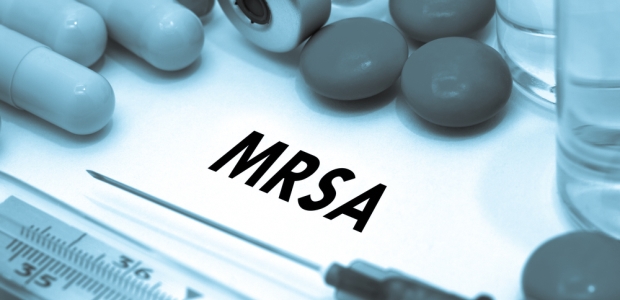
Nearly 20,000 U.S. Staph Deaths Last Year, CDC Reports
CDC experts say health care tactics such as decolonization (reducing germs people may carry and spread) before surgery and following CDC's current recommendations could prevent more staph infections.
A new Vital Signs report from CDC says more than 119,000 bloodstream infections and nearly 20,000 deaths are attributable to staph, showing that —despite reductions to date—staph infections still threaten patients in the United States. The report underscore that all staph can be deadly and that health care providers and administrators can take prevention steps to protect their patients.
The report includes results derived from electronic health records at more than 400 acute care hospitals, the experts said in a briefing March 5.
Staphylococcus aureus (staph) is a germ found on people's skin. Staph can cause serious infections if it gets into the blood and can lead to sepsis or death. Staph is either methicillin-resistant staph (MRSA) or methicillin-susceptible staph (MSSA).
The germ can spread in and between hospitals and other health facilities, and in communities. People are at higher risk for staph infection when they have surgery or stay in health care facilities, have medical devices in their body, inject drugs, or when they come in close contact with someone who has staph. The officials stressed that additional tactics in health care—such as decolonization (reducing germs people may carry and spread) before surgery—and following current CDC recommendations could prevent more staph infections.
The agency reported that MSSA rates are not declining, and the rise of staph infections in communities may be connected to the opioid crisis. In 2016, 9 percent of all serious staph infections happened in people who inject drugs—rising from 4 percent in 2011.
"Staph infections are a serious threat and can be deadly," said CDC Director Robert Redfield, M.D. "U.S. hospitals have made significant progress, but this report tells us that all staph infections must remain a prevention priority for healthcare providers."
"We know infection prevention and control works but it's not one-size-fits-all. Additional strategies, including decolonization, for example, may be needed in certain circumstances and patients, to ensure optimal prevention and the best outcome for the patients," said Athena Kourtis, M.D., Ph.D., MPH, associate director for Data Activities in CDC's Division of Healthcare Quality Promotion.
For more information about MRSA and MSSA infections and to read the entire report, visit www.cdc.gov/vitalsigns.